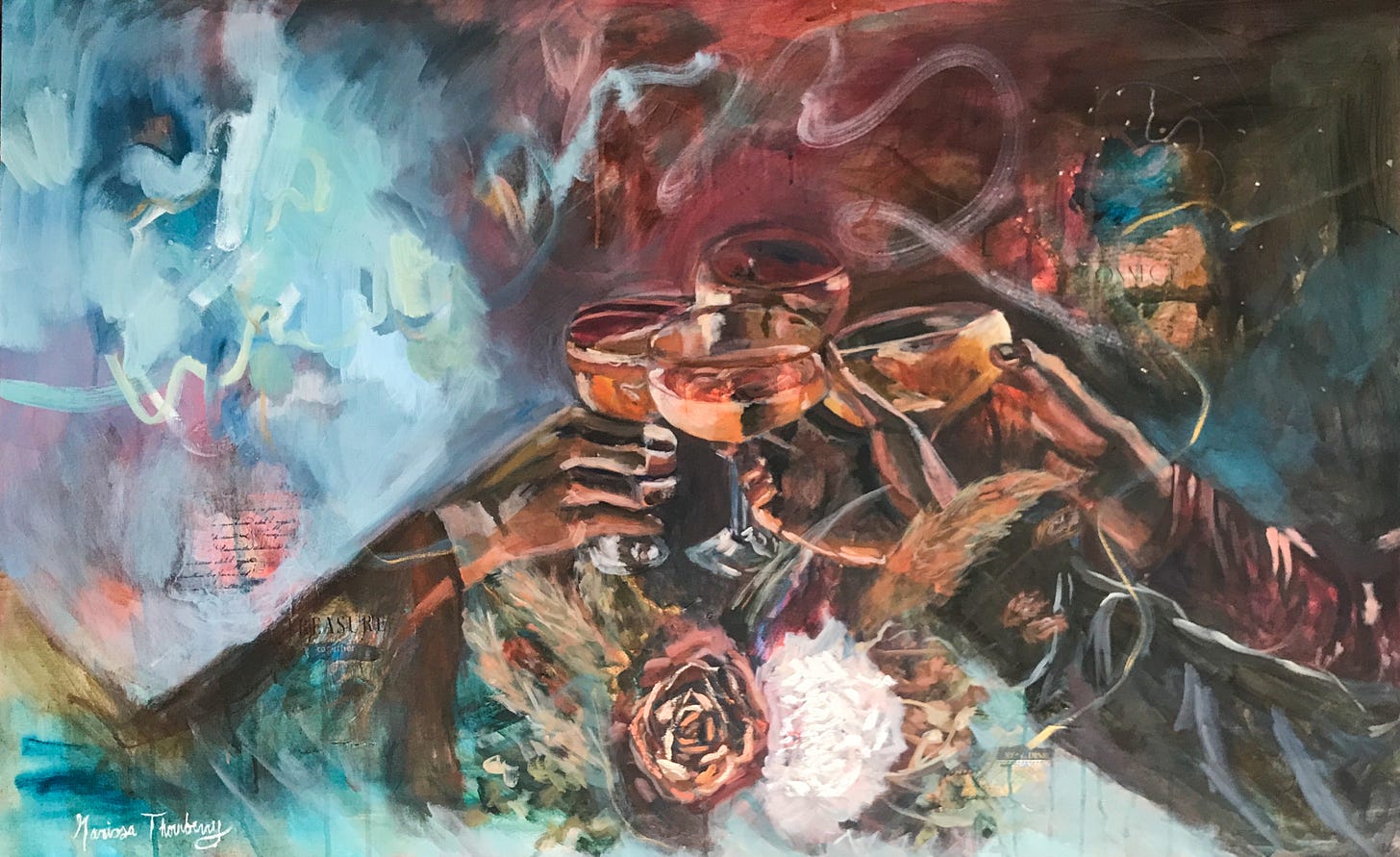Introducing The Branches Journal
Reaching out, growing deep: Finding our purpose in the Fall 2024 issue
The Branches is a journal of literature and philosophy dedicated to exploring our beliefs, our influences, and our contexts through word and art.
Instead of making silos for creative expression, theological meditation, popular media, and intellectual thought, The Branches is interested in the fluctuating overlap of all of these and seeks to provide a space for earnest engagement, curious reflection, open-minded dialogue, and mutual betterment.
When we seek to discover our life’s purpose, we find that the world is a rather difficult place to live. The idea of our purpose, our telos, as Aristotle coined, comes up against what the world demands and allows of us, giving no easy answers. What are we driven by and why do we continue? How does a thing justify itself? What is the work of our lives? The calling, the vocation? What is the goal of the art we consume and the structures we live within? In briefest response, we believe the way to investigate the intent behind a work and grasp onto purpose is to understand its context, which is what you’ll see explored in this issue.
This theme selection was partly selfish as we began work on our inaugural issue. We were seeking to find what the purpose of The Branches was. What would be the purpose of the community we hope grows around it? For me, it was also, what is my purpose as the creator of this thing and its editor in chief? What am I, what are we, doing here? Our tagline for the journal is “Reaching out, growing deep,” which I like because of the branches metaphor, the branches that reach to new extents and go deep, not content to stay at surface level.

But especially following the election, I’ve been thinking about how a publication is a platform, and a platform is a responsibility.
I’m an editor. I care about words and language and commas. And I don’t know how to create a literary journal, a journal of essay writing and poetry and story, without deeply caring about and valuing media literacy, literary analysis, deep thinking, critical thinking, and creativity, which by definition embraces a variety of perspectives because otherwise it’s so, so boring. All of these values are inherently political.
And they also cannot function alongside celebrating or condoning hate—racism, misogyny, bigotry in all its varied forms. If the purpose of this journal is to think deeply and critically and participate in earnest and meaningful dialogue, it must reject close-mindedness.
This conversation, the dialogue of writing and editing and reading, is dependent upon mutually engaging with truth and opinion and knowing which is which within an argument. And it’s only interesting and worthwhile if you have it with people who bring different perspectives, different contexts, different influences, and different beliefs, which means acknowledging their existence and respecting their personhood and dignity.

So that’s our purpose. Our telos. The work of this journal. And we reserve the right for it to grow and evolve because the world is a difficult place to live and it changes and reveals what it already was and and demands change again. And as for you, dear reader, the purpose I am giving you is to subscribe this Substack to read the journal and appreciate the work and creativity of all our wonderful contributors and take it out to your friends and grow the community to read and think and write. Lastly, if you know me a bit, you know that C. S. Lewis is one of my favorite writers, and I read this quote earlier in the week:
“If we are all going to be destroyed by an atomic bomb, let that bomb when it comes find us doing sensible and human things—praying, working, teaching, reading, listening to music, bathing the children, playing tennis, chatting to our friends over a pint and a game of darts—not huddled together like frightened sheep and thinking about bombs.”
We will be sharing essays, poetry, art, and short stories from the contributors to the Fall 2024 issue of The Branches Journal on this Substack. Follow along to join the dialogue and consider the theme of purpose: how we find it, where we see it, and why we chase it.



